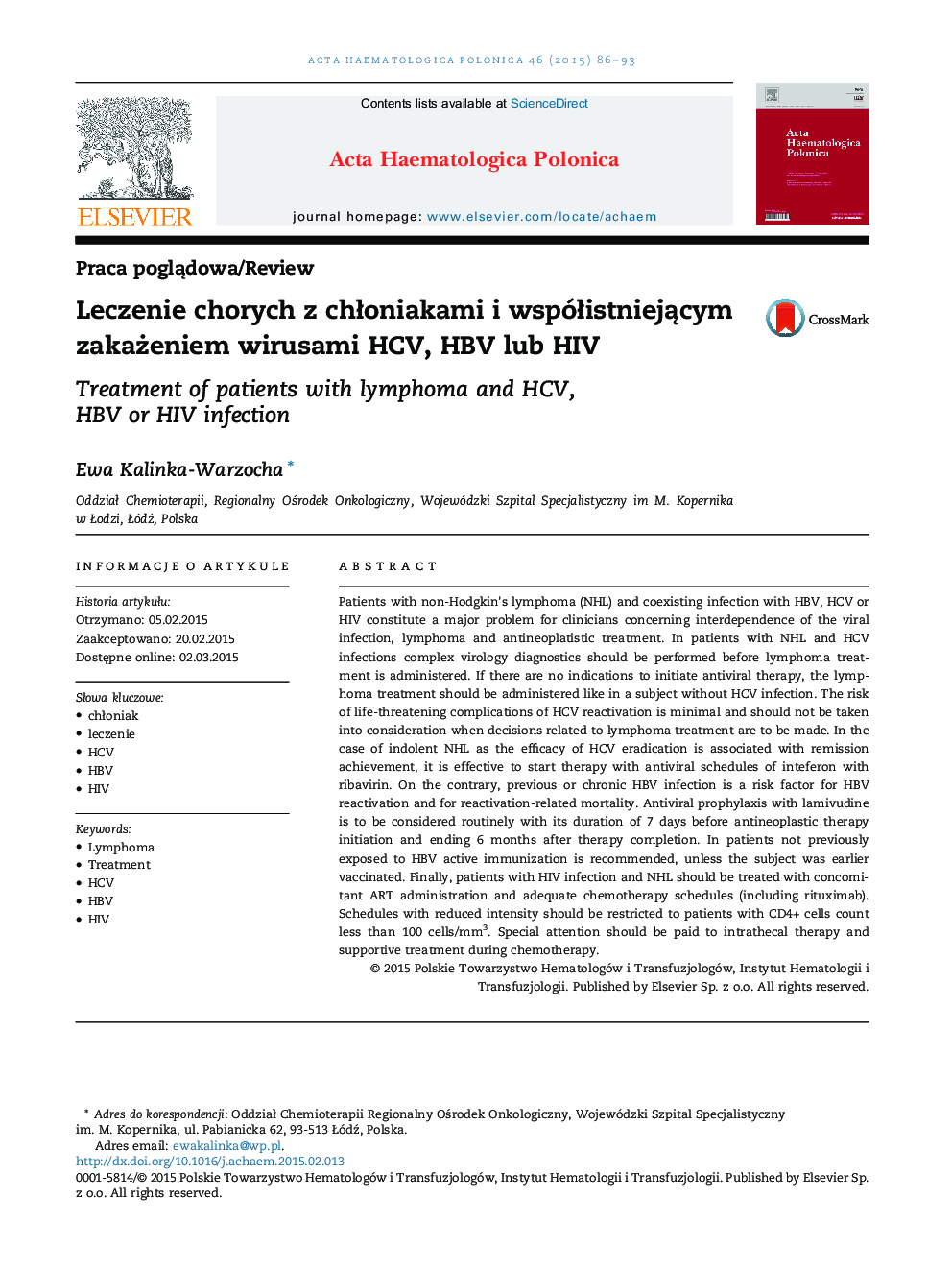| Article ID | Journal | Published Year | Pages | File Type |
|---|---|---|---|---|
| 3328109 | Acta Haematologica Polonica | 2015 | 8 Pages |
Patients with non-Hodgkin's lymphoma (NHL) and coexisting infection with HBV, HCV or HIV constitute a major problem for clinicians concerning interdependence of the viral infection, lymphoma and antineoplatistic treatment. In patients with NHL and HCV infections complex virology diagnostics should be performed before lymphoma treatment is administered. If there are no indications to initiate antiviral therapy, the lymphoma treatment should be administered like in a subject without HCV infection. The risk of life-threatening complications of HCV reactivation is minimal and should not be taken into consideration when decisions related to lymphoma treatment are to be made. In the case of indolent NHL as the efficacy of HCV eradication is associated with remission achievement, it is effective to start therapy with antiviral schedules of inteferon with ribavirin. On the contrary, previous or chronic HBV infection is a risk factor for HBV reactivation and for reactivation-related mortality. Antiviral prophylaxis with lamivudine is to be considered routinely with its duration of 7 days before antineoplastic therapy initiation and ending 6 months after therapy completion. In patients not previously exposed to HBV active immunization is recommended, unless the subject was earlier vaccinated. Finally, patients with HIV infection and NHL should be treated with concomitant ART administration and adequate chemotherapy schedules (including rituximab). Schedules with reduced intensity should be restricted to patients with CD4+ cells count less than 100 cells/mm3. Special attention should be paid to intrathecal therapy and supportive treatment during chemotherapy.
